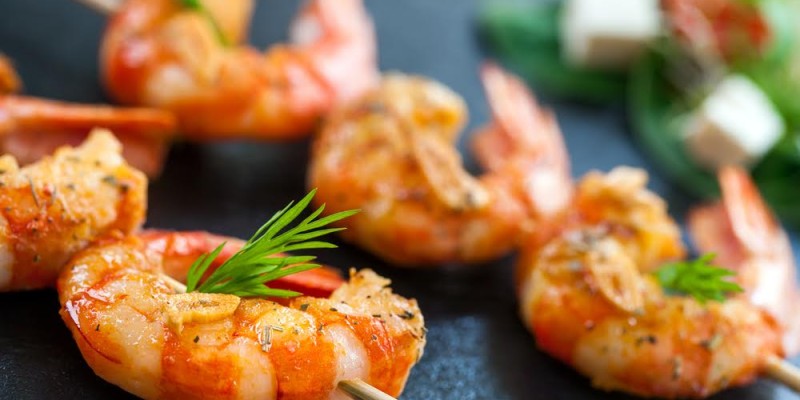Australia’s most popular seafood
 As a country that is basically one huge island surrounded by deep waters and strong main currents connecting us to the rest of the world, we are blessed to have a wide selection of seafood all year round on our very own doorsteps. In this post we share some of Australia’s favourite and most popular seafood selections – and share a couple of ideas on making sure our love for seafood is sustainable.
As a country that is basically one huge island surrounded by deep waters and strong main currents connecting us to the rest of the world, we are blessed to have a wide selection of seafood all year round on our very own doorsteps. In this post we share some of Australia’s favourite and most popular seafood selections – and share a couple of ideas on making sure our love for seafood is sustainable.
Prawns
According to the Australian Fisheries Statistics Report in 2013 alone 18,596 tonnes (that’s a whopping 16,870,007 kilos!) of wild, fresh caught prawns were consumed in Australia. Serve them cold as an entrée, as a part of refreshing salad; or perhaps the star of a main dish (did someone say grilled prawns?) prawns are always on the go-to list for a Summer Seafood BBQ.
Oysters
Served fresh over ice, or perhaps baked Kilpatrick. Some know them as bite-size aphrodisiacs, others believe it takes an acquired taste to palate them. But whether you like them or not, according to the Australian Fisheries Statistics Report (2013) 15,745 tonnes (14,283,624 kgs) was consumed in Australia – so there’s definitely a supply and demand factor going on here.
Tuna
Enjoy it seared, in sushi or straight out of a can – tuna is one of the most versatile seafoods available in Australia today. According to the Australian Fisheries Statistics Report in 2013, 7,554 tonnes was consumed (6,852,874 kgs).
Crab
Australia is home to several species of delicious crabs, including blue swimmer crabs, mud crabs, spanner crabs, crystals crabs and many more. According to the Australian Fisheries Statistics Report in 2013, 5,090 tonnes (4,617,570 kgs) of wild-caught crabs were consumed.
Barramundi
A freshly grilled barramundi and chips is the perfect lunch on a Sunday (or any other day for that matter). This fish is popular for grilling and sourced via aquaculture, so it’s a sustainable activity. According to the Australian Fisheries Statistics Report in 2013, 4,498 tonnes were farmed (4,080,517 kgs).
Whiting & Flathead
Popular items you’ll find at the local chipper, in 2013 (according to the Australian Fisheries Statistics Report) 3,441 tonnes of Whiting were consumed (3,121,623 kgs) and further 4,059 tonnes (3,682,263 kgs) of wild-caught flathead were also consumed.
Sustainability
Reviewing these massive numbers of seafood being consumed in Australia back in 2013, it’s surprising to note that the entire Australian wild-catch production represents only 0.002% of the world’s seafood production (Seafood for Australia, 2015). Seafood for Australia suggests that we should not only think of how we are going to supply our increasing demand for seafood, but also consider:
- The growing concern about how the world is going to feed people in the future; and
- The important role Australia, as an internationally recognised world leader in sustainable fisheries management, can play in demonstrating how we fish our marine area (which is greater than Australia’s land area) and assist the developing world to sustainably fish their marine areas.
